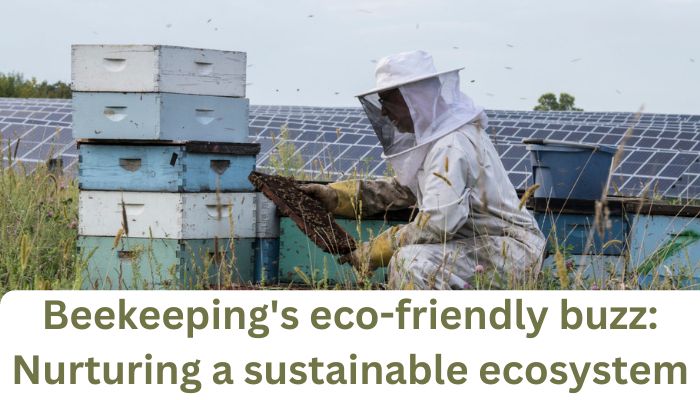The beekeeping industry is undergoing a transformation that goes beyond honey collection. It plays a pivotal role in nurturing an environmentally sustainable ecosystem. The focus is on ethical honey sourcing, sealed comb honey, and the diversification of honey types. The beekeeping industry is evolving to benefit bees, promote a healthier planet, and offer culinary delights.
Dr. Yoginee Budhkar, Co-Founder at Cerana Meads, and Dr. Ashwini Deore, Co-Founder at Cerana Meads, provide valuable insights:
**Ethical Honey Sourcing:**
Honey bees collect nectar and pollen for their nutrition. They store surplus honey in the top part of the hive, known as the ‘super chamber.’ This surplus honey can be harvested by beekeepers without disturbing the brood chamber where the queen bee lays her eggs. Ethical sourcing of honey involves collecting honey only from super chambers, ensuring that bees’ own sustenance isn’t stolen.
**Sealed Comb Honey vs. Prematurely Harvested Honey:**
Honey formation involves bees reducing moisture content to around 18-22%. When a cell is full of honey, they seal it with wax to prevent moisture absorption. Sealing indicates the natural formation of honey. Prematurely harvested honey is often diluted and requires treatment for moisture reduction, making it less raw and unprocessed.
**Varietal Honey at Cerana:**
Cerana Meads uses varietal honey for their meads, showcasing distinct aroma and taste profiles. They source honey from various regions, such as lychee honey from Bihar, Jamun honey from Madhya Pradesh and Maharashtra borders, multifloral honey from Himachal Pradesh, and Mustard honey from Rajasthan.
**Increasing Per Capita Honey Consumption:**
To enhance per capita honey consumption in India, honey processing and its use in various consumable products are key. Celebrating local honeys’ unique qualities by converting them into meads is one approach.
**Beekeeping’s Environmental Impact:**
Beekeeping promotes eco-friendly agricultural practices by reducing reliance on harmful pesticides and enhancing crop pollination. Awareness among farmers about the benefits of having beeboxes near farms encourages organic pest control, resulting in less toxic crops and a more sustainable ecosystem.
Beekeeping is not just about honey; it’s a vital component of a sustainable and eco-friendly world.

